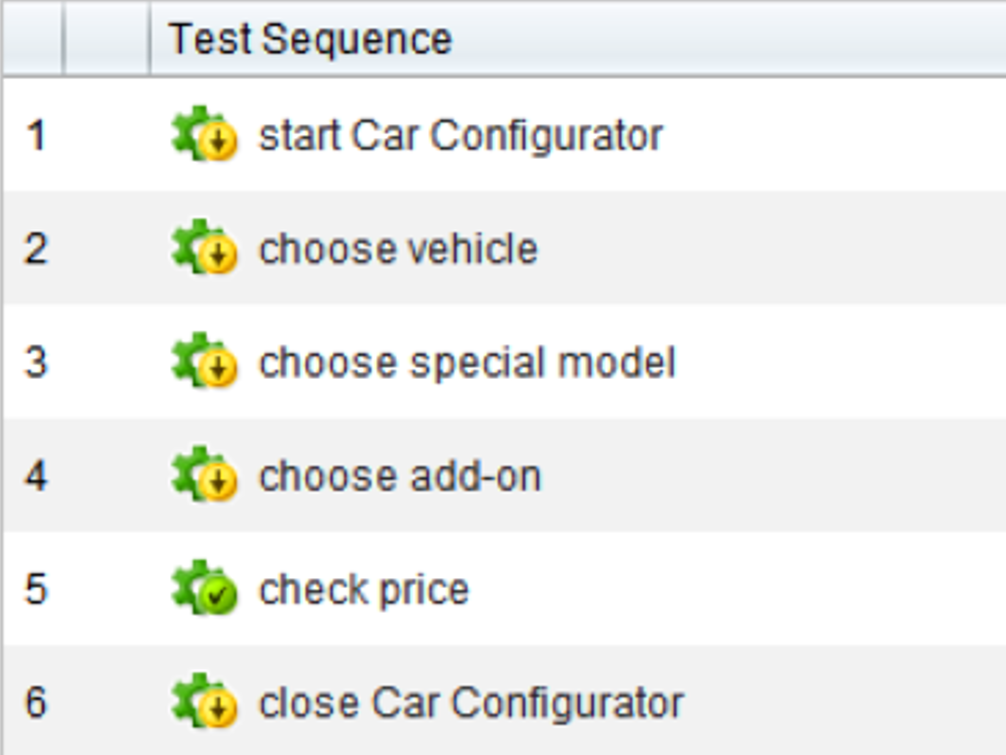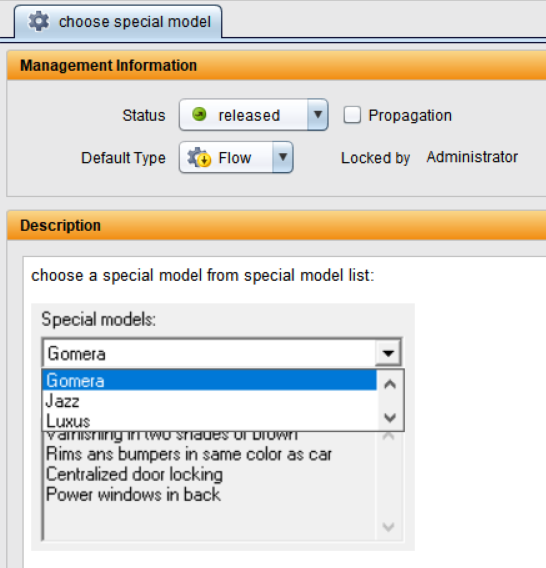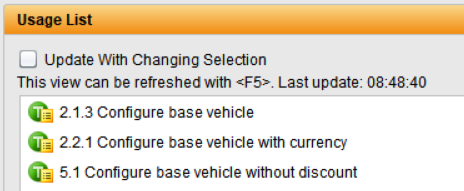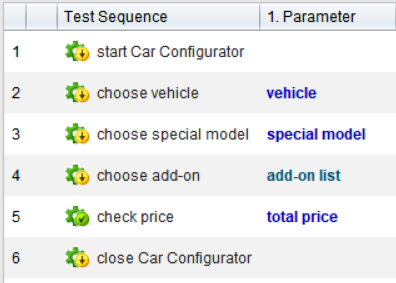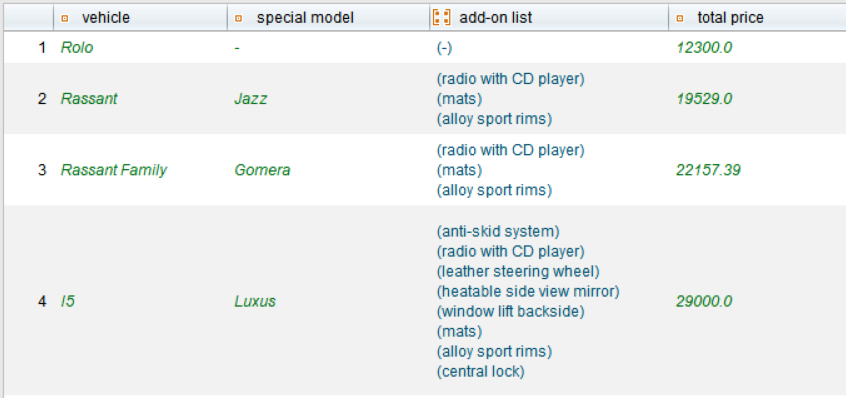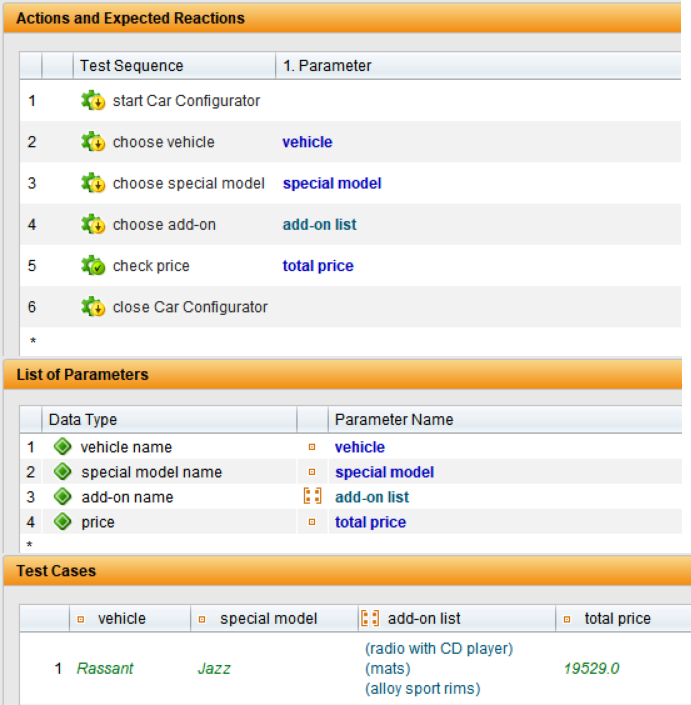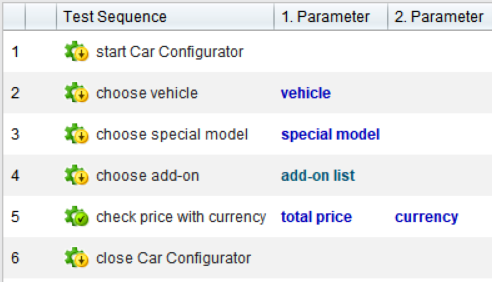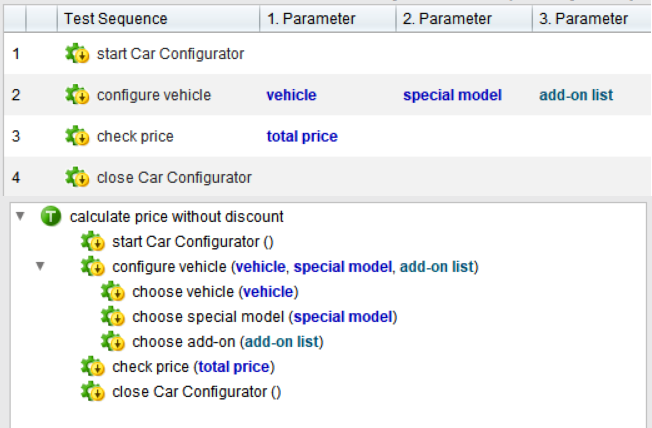What is Keyword Driven Testing?
Keyword Driven Testing uses reusable building blocks, known as keywords, to create test cases. These keywords form an easy-to-learn language that connects technical experts, testers and automation engineers. Each building block stands for a clearly defined test step, which makes the test cases easier to understand and facilitates collaboration within the team. This creates a common vocabulary for specific domains and application areas.
Special challenges in the specification of tests
Test managers face several challenges when defining and specifying tests:
Advantages of Keyword Driven Testing
Keyword-driven testing offers numerous advantages that improve both the efficiency and the quality of the tests:
- Reusability and maintainability: as each keyword is managed centrally, changes to a keyword immediately affect all associated test cases. Redundant adjustments are no longer necessary, which makes maintenance considerably easier.
- Simplified test automation: Automation is limited to the implementation of individual keywords instead of automating complete test cases. This significantly reduces the implementation effort.
- Speed and efficiency: Test cases can be quickly compiled from existing keywords. New keywords are only required for additional functionalities.
- Collaborative: Keywords create a common foundation that enables subject matter experts and automation specialists to work together efficiently.
When is Keyword Driven Testing recommended?
Keyword Driven Testing is particularly suitable for system or acceptance tests where both technical precision and abstract documentation are required.
Areas of application:
The easy readability of test specifications and the ability to quickly achieve a high level of automation coverage make Keyword Driven Testing a versatile method.
How does Keyword Driven Testing work with TestBench?
TestBench is a tool that supports the practical application of Keyword Driven Testing. Keywords are defined as test steps and managed centrally.
Central functions of TestBench:
- Test element view: Keywords are created and organised here. They can be integrated into test sequences and used multiple times.
- Parameters and data: Each keyword can contain parameters that can be flexibly customised. This creates dynamic and reusable tests.
- Versioning: Changes to keywords are tracked centrally to avoid errors caused by unintentional adjustments.
This structured approach not only supports compliance with standards such as ISO 29119-5, but also enables Keyword Driven Testing to be combined with Data Driven Testing.
Why Keyword Driven Testing for automation?
- Efficiency: Only individual keywords are automated, which keeps the effort constant.
- Flexibility: Changes to technical specifications are easy to implement.
- Reduction of technical complexity: Specialist details can be presented at a higher level of abstraction, while technical details remain in subordinate keywords.
A detailed explanation can be found on the Test Automation page.
Why Keyword Driven Testing for manual testing?
Keyword Driven Testing also shows its strength in manual tests:

Simpler test specification
Test sequences can be quickly recognised and clearly displayed thanks to keywording.

Consistency and quality
Tests are carried out consistently regardless of the experience of the person performing the test.

Speed
Test execution can be up to 40 % faster, as the focus is on the actual test execution rather than on understanding the specification.
This approach not only improves efficiency, but also the reproducibility and reliability of the test results.
Further information on test execution can be found on the Test Execution page and in the blog post ‘Less effort, more efficiency: the iTORX assistant’
